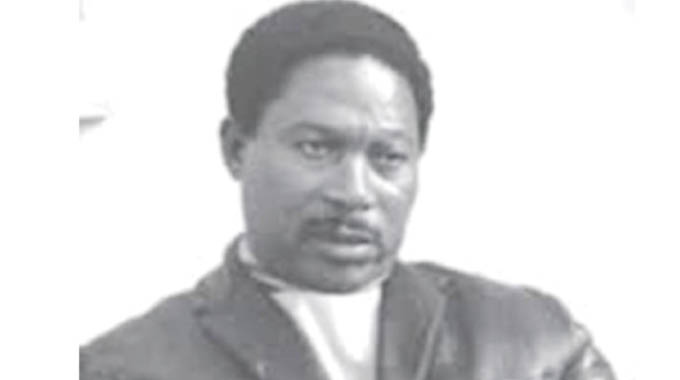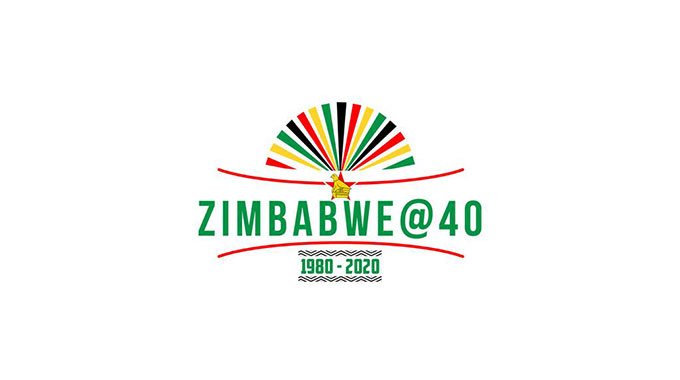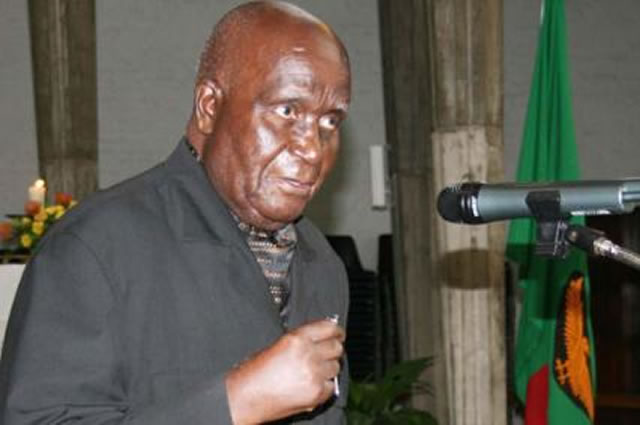Inquiry into Jason Ziyaphapha Moyo’s death threatened Zapu’s existence

Nduduzo Tshuma, Political Editor
THE commission of inquiry into the death of Zapu Vice President Jason Ziyaphapha “JZ” Moyo, killed by a parcel bomb in January 1977, failed to conclude due to fears by Zambian leader Dr Kenneth Kaunda that it would split the party, it has been revealed.
A former Zapu intelligence commander Cde Gibson Mayisa, who was appointed by Zapu President Dr Joshua Nkomo to chair a three-member commission of inquiry on JZ’s death, said they encountered challenges in interviewing some senior party cadres over the matter.
He said when Dr Nkomo wanted to flex his muscles to force the senior party member to cooperate, Dr Kaunda counselled him otherwise.
Cde Mayisa said as the intelligence, they had established that JZ had many political enemies given the events of the Zapu crisis that led to the breakaway of the likes of James Chikerema to form Frolizi.
He said a woman based in Botswana linked to JZ and believed to have sent him the parcel, was cleared as investigations revealed that the parcel, though bearing Botswana stamp, had not come from there.
“JZ originally, before his death, to us in the intelligence, he had may political enemies but his biggest enemy was the Rhodesians then came others,” said Cde Mayisa.

He said they were operating from a small building, where the bomb detonated, that did not belong to Zapu but to a Mr John Makiwa, a Zambian businessman.
He said according to the “proxy document” that had been adopted after the Zapu crisis, they were supposed to have an office in the bush.
Cde Mayisa said Zapu had a post box from where they received letters where the letter addressed to JZ was deposited.
“There was a person charged with collecting the letters, he had the keys to the box, it was a young man with an amputated arm and damaged eye. He is the one who collected mail. There was also another person who used to scan letters in the office and people who entered that building wee supposed to be scanned,” said Cde Mayisa.
He said on the day JZ was in the office along with Dr Dumiso Dabengwa, Jane Ngwenya, Sikhwili Moyo, John Nkomo, one Dingani and Amos Jack Ngwenya.
“On that particular day, there was a letter addressed to JZ, nicely wrapped with a parcel inside that looked like a magazine. Other letters were scanned but when he was about to scan this particular letter, JZ took it and jokingly said hayi hayi hanti leyi ngeyami. They laughed and made a joke out of it,” said Cde Mayisa.
He said as JZ opened the parcel, it detonated and killed him while others were injured.

“I remember Dabengwa was hospitalised alongside Dingani. After the death of JZ, Nkomo was there as they had just arrived from the Geneva conference. Nkomo called me and said ‘Mayisa work on this issue, I want you to chair a commission of three people and investigate where this thing came from.’
“He gave me two boys from the military intelligence (Retired Brigadier-General Abel) Mazinyane and another boy called Aleck Ndlovu and we started our investigations,” he said.
Cde Mayisa said as investigations progressed, they failed to agree on a number of issues including whether or not Amos Ngwenya should be interrogated.
“Yes, he made a blunder by allowing JZ to open the letter without scanning it but with the way I knew JZ, he was that kind of person who would take a decision and stick to it. Ndlovu insisted that Amos be detained and interrogated but because of some reasons, we saw that its not possible, it wasn’t Amos. Amos was not going to be there if he knew about the explosion,” said Cde Mayisa.
“We then dropped Ndlovu and I remained working with Mazinyane.”
Cde Mayisa said he then travelled to Botswana and spoke to a number of people including Botswana security details and government officials and the woman who had supposedly sent the letter to JZ.
“I cleared that woman, she did not know anything. The letter originated from somewhere and not from Botswana. The stamp that was used (on the letter) was from Botswana but we established that it had been used before,” said Cde Mayisa.
Back in Zambia, Cde Mayisa said they interviewed Zipra commanders and some members of the Zapu national executive and ordinary party members present in Zambia.
“There were a number of questions that remained unanswered. One question was at the Zambian post office. They failed to say how the letter got to their office. There was also a question on the person who collected the letters with the key to the post box. Did he, at times give it to other people? That we did not establish. The youngman was an office orderly but on the day the bomb detonated, he was not at the office and no one knew where he was,” said Cde Mayisa.
“It was also necessary to talk to other senior members of Zapu national executive but we failed because we were juniors in the party, we were really nonentities. These men and women refused and said they would not talk to juniors like us about that matter. They said what did we suspect them of when we as youngsters would want to interrogate them on the,” said Cde Mayisa.
“After that Nkomo tried to use his powers to force the senior Zapu leaders to cooperate with us but he was stopped by Kaunda because it seemed as if the party was going to split because of the insistence that the senior national executive members cooperate. Kaunda counseled that uMdala leaves the matter and it would be resolved on its own.”
Cde Mayisa said after the death of JZ, a lot of things changed in both Zapu and the military wing.
He said most commanders were reshuffled and sent to foreign missions.
Cde Mayisa was sent to Botswana as the Zapu chief representative and was redeployed to Cuba in late 1978 until after Independence in 1980.











Comments